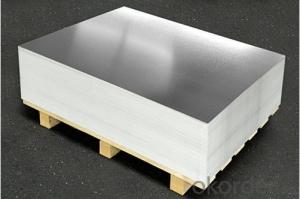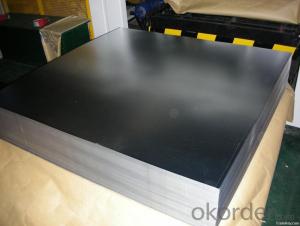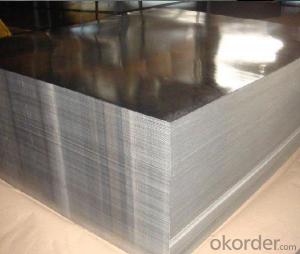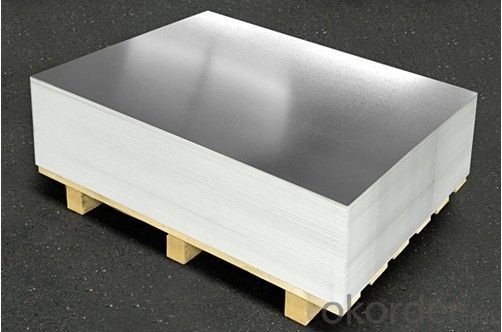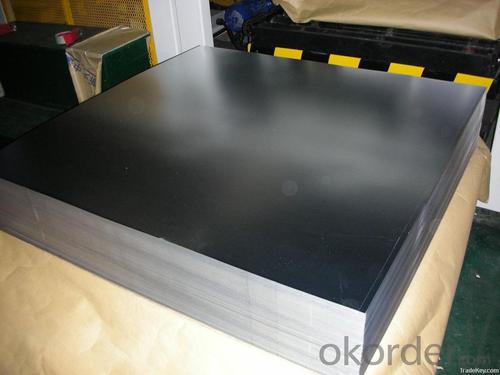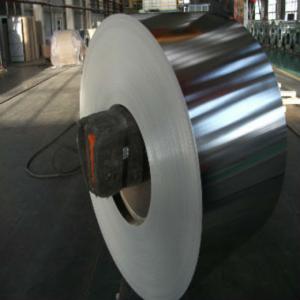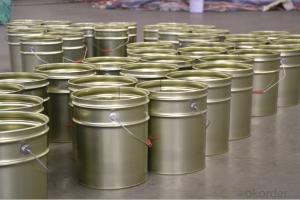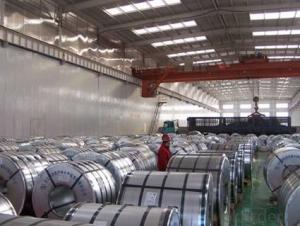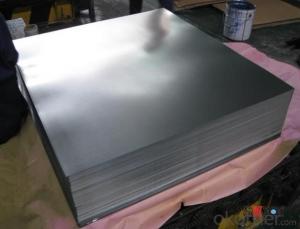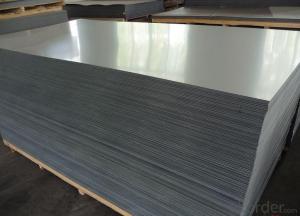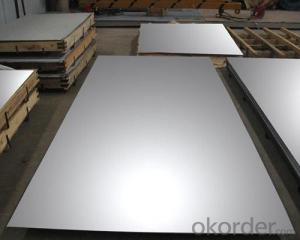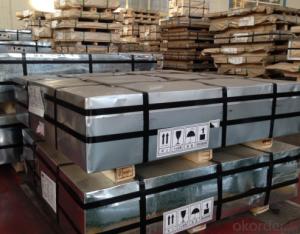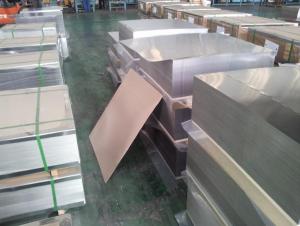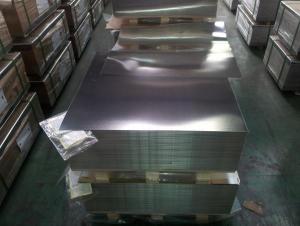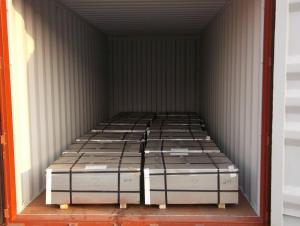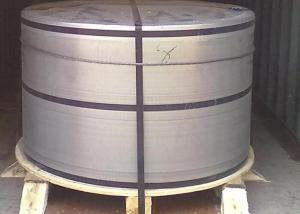Electrolytic Tinplate in Sheets for Tin Cans
- Loading Port:
- Tianjin
- Payment Terms:
- TT OR LC
- Min Order Qty:
- 25 m.t
- Supply Capability:
- 7000 m.t/month
OKorder Service Pledge
OKorder Financial Service
You Might Also Like
1.Structure of Electrolytic Tin Plate Coils and Sheets for Foods Metal Packaging Description
Electrolytic Tin Plate Coils and Sheets for Foods Metal Packaging, is one thin steel sheet with a coating of tin applied by electrolytic deposition. Tinplate made by this process is essentially a sandwich in which the central core is strip steel. This core is cleaned in a pickling solution and then fed through tanks containing electrolyte, where tin is deposited on both sides. As the strip passes between high-frequency electric induction coils, it is heated so that the tin coating melts and flows to form a lustrous coat.
2.Main Features of the Electrolytic Tin Plate Coils and Sheets for Foods Metal Packaging
Appearance – Electrolytic Tin Plate is characterized by its beautiful metallic luster. Products with various kinds of surface roughness are produced by selecting the surface finish of the substrate steel sheet.
Paintability and printability – Electrolytic Tin Plates have excellent paintability and printability. Printing is beautifully finished using various lacquers and inks.
Formability and strength – Electrolytic Tin Plates have got very good formability and strength. By selecting a proper temper grade, appropriate formability is obtained for different applications as well as the required strength after forming.
Corrosion resistance – Tinplate has got good corrosion resistance. By selecting a proper coating weight, appropriate corrosion resistance is obtained against container contents. Coated items should meet 24 hour 5 % salt spray requirement.
Solderability and weldability – Electrolytic Tin Plates can be joined both by soldering or welding. These properties of tinplate are used for making various types of cans.
Hygienic – Tin coating provides good and non toxic barrier properties to protect food products from impurities, bacteria, moisture, light and odours.
Safe – Tinplate being low weight and high strength makes food cans easy to ship and transport.
Eco friendly – Tinplate offers 100 % recyclability.
Tin is not good for low temperature applications since it changes structure and loses adhesion when exposed to temperatures below – 40 deg C.
3.Electrolytic Tin Plate Coils and Sheets for Foods Metal Packaging Images
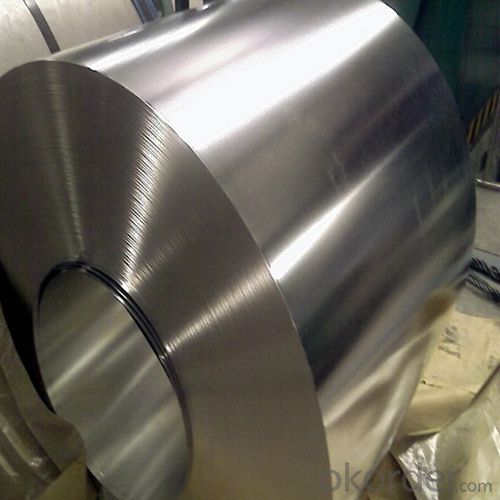
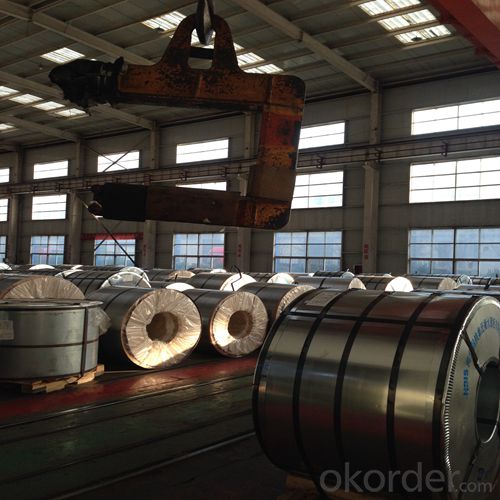
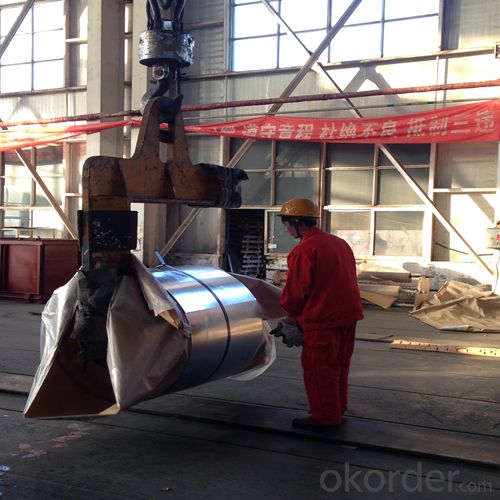
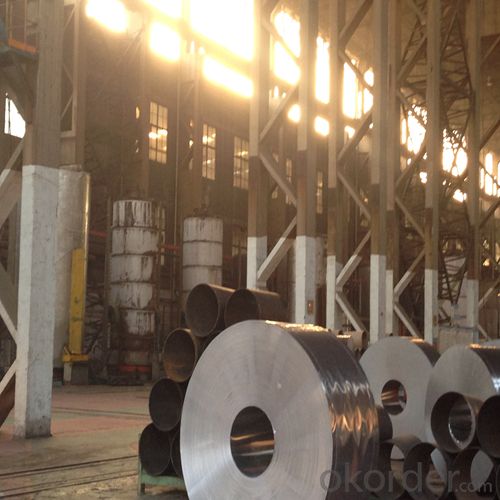
4.Electrolytic Tin Plate Coils and Sheets for Foods Metal Packaging Specification
Standard | ISO 11949 -1995, GB/T2520-2000,JIS G3303,ASTM A623, BS EN 10202
|
Material | MR,SPCC |
Thickness | 0.15mm - 0.50mm |
Width | 600mm -1150mm |
Temper | T1-T5 |
Annealing | BA & CA |
Coil Inner Diameter | 508mm |
Weight | 6-10 tons/coil 1~1.7 tons/sheets bundle |
Passivation | 311 |
Oil | DOS |
Surface | Finish,bright,stone,matte,silver |
5.FAQ of Electrolytic Tin Plate Coils and Sheets for Foods Metal Packaging
-How to place .an order or contact you ?
Please send us Email. we will give you a quick response in seconds .
- How is your quality ?
All our quality is prime even the secondary quality . We have many years experience
In this field with serious quality control standard . Advanced equipment, We welcome your visit to our factory .
- Q: What are the main differences between tinplate and tinplate laminates in terms of design flexibility?
- Tinplate offers limited design flexibility due to its rigid nature, while tinplate laminates provide greater design flexibility as they can be combined with other materials, allowing for more creative and versatile packaging options.
- Q: How to distinguish galvanized plate and tin plate
- The zinc plating on the galvanized sheet has no grain on the surface of the galvanized sheet under the optical microscope. Drip water on galvanized sheet can form more spreading water droplets, while on tin plate, water drops will shrink rapidly.
- Q: Can tinplate be used for kitchenware?
- Yes, tinplate can be used for kitchenware. Tinplate is a type of steel coated with a thin layer of tin, which provides corrosion resistance and food-safe properties. It is commonly used for making cans, containers, and kitchen utensils like pots, pans, and baking sheets.
- Q: Can tinplate be used for packaging non-food items?
- Yes, tinplate can be used for packaging non-food items. Tinplate is a versatile material that is commonly used for packaging various products, including cosmetics, pharmaceuticals, chemicals, and other non-food items. Its durability, corrosion resistance, and aesthetic appeal make it a suitable option for packaging non-food items.
- Q: What are the different tinplate finishes available?
- Some of the different tinplate finishes available are bright finish, stone finish, matte finish, lacquered finish, and printed finish.
- Q: How does tinplate perform in terms of odor resistance?
- Tinplate performs well in terms of odor resistance due to its non-reactive and impermeable nature, which prevents the absorption and transmission of odors.
- Q: What are the main challenges in tinplate labeling?
- The main challenges in tinplate labeling include ensuring proper adhesion of labels to the smooth and sometimes oily surface of tinplate, maintaining label integrity during the packaging and transportation process, and finding solutions to prevent label damage due to moisture, heat, or other environmental factors. Additionally, accurately positioning and aligning labels on curved or irregularly shaped tinplate surfaces poses a significant challenge.
- Q: What are the different ways to seal tinplate cans?
- There are several methods to seal tinplate cans. Some common ways include double seaming, soldering, welding, adhesive bonding, and using plastic or metal caps with sealing compounds. Each method has its own advantages and is chosen based on factors such as the type of product being packaged, desired shelf life, cost, and production requirements.
- Q: How does tinplate perform in terms of light blocking?
- Tinplate is an effective material for light blocking. Its thick and durable structure prevents light from passing through, making it suitable for applications that require complete light protection, such as packaging for light-sensitive products or containers for storing food and beverages.
- Q: Can tinplate packaging be used for gift items?
- Yes, tinplate packaging can definitely be used for gift items. It is a versatile and durable material that can be easily customized and decorated to create attractive and unique packaging for various gift items. Tinplate packaging provides a great combination of functionality and aesthetics, making it a popular choice for gift packaging.
Send your message to us
Electrolytic Tinplate in Sheets for Tin Cans
- Loading Port:
- Tianjin
- Payment Terms:
- TT OR LC
- Min Order Qty:
- 25 m.t
- Supply Capability:
- 7000 m.t/month
OKorder Service Pledge
OKorder Financial Service
Similar products
Hot products
Hot Searches
Related keywords
